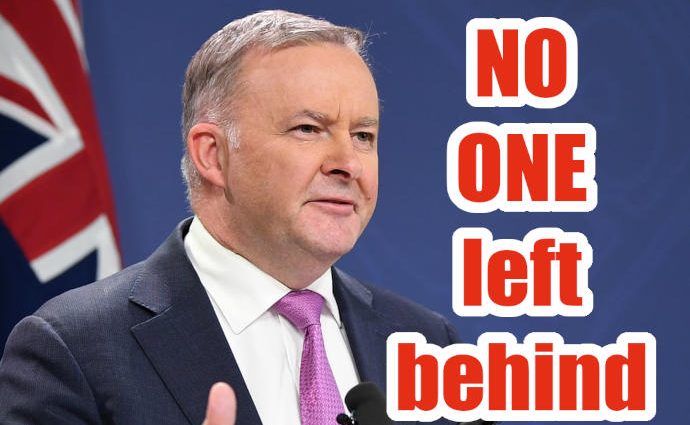by Anthony Albanese
Australians are not backward in coming forward when asked to give feedback to their political leaders. That’s a good thing about democracy.
On the weekend I completed a 10-day tour of Queensland, starting in Cairns and moving south nearly 1700km to Brisbane, with visits to all large regional centres in between.
I travelled by road, talking to Queenslanders about their concerns on the ground as we commence the third year of the Covid pandemic and head toward the coming federal election. People are resilient, but they are frustrated over the shortage of rapid antigen tests, the difficulty securing appointments for vaccinations and the food shortages in supermarkets.
Australians know these problems could have been avoided.
No one wants more lockdowns. But most people I met struggled to understand how the Morrison government failed to make better preparations for the reopening of the economy after months of lockdowns caused by its slow rollout of Covid vaccines.
The demand for RAT kits and the pressure on health and distribution systems were predictable and Scott Morrison was warned but failed to act. He should also have anticipated the situation in aged-care facilities, where staff shortages are compromising care of vulnerable Australians.
But beyond the immediate Covid frustration, the big issue on the agenda in regional Queensland is labour shortages. Just about every business operator I met, but particularly in tourism and hospitality, reported difficulty finding staff. From Cairns and Airlie Beach in the north and all the way down the Bruce Highway, labour shortages are acting as a handbrake on economic recovery.
The tourists are starting to return and the businesses are ambitious to get back to work. But many can’t find enough staff to operate at full capacity, even without the absenteeism caused by the Omicron variant. When Covid closed our borders, thousands of businesses suddenly lost access to temporary visa holders. The lesson is clear: Australia is too reliant on overseas workers.
Before the pandemic we already had worker shortages across a range of spheres – everything from the trades to the caring industries such as nursing and aged care, as well as in science and engineering, which have great potential to drive future growth in new industries.
But the pandemic has magnified our skills shortage. This is a weakness we must confront if we are to rebuild our economy so it is more resilient and vibrant than it was when the pandemic hit.
The Morrison government must urgently work more closely with industry leaders and unions to get these sectors moving again. But the long-term solution is to train more Australians to meet our own labour needs.
It’s extraordinary that we have a skills shortage at the same time as two million Australians are either unemployed or underemployed. There are 85,000 fewer people in apprenticeships and traineeships than when the Liberals and Nationals were elected.
In December, I announced Labor’s Made in Australia skills policy, our plan to work with state governments to rebuild the TAFE system, provide 465,000 free TAFE courses and create 20,000 new university places in areas of skill shortage.
Also read: Taking Charge: Albo makes major changes to his shadow cabinet
Skilling up Australians will give our people more opportunities and make it easier for businesses to expand. It will also build a workforce to drive the development of new industries that will drive prosperity for decades.
Manufacturing will be part of that growth wave. When the pandemic hit, Australia found we were unable to meet our own medical needs in areas such as face masks, medicines and mRNA vaccines. That’s not good enough. Across Queensland, I confirmed my view that people want us to be a nation that makes things again – including emergency medical goods.
But Australians also understand the potential for cheap, renewable energy to spark a revival of industry. Cheap power can boost the productivity of existing industry, as well create opportunities in emerging sectors.
A federal Labor government will create a National Reconstruction Fund to back new business ventures as well as the recovery of sectors hit hard by the pandemic. It will focus specifically on value-adding to bulk exports and new industries, particularly in regional Australia.
On the road in Queensland I heard many people speak of the need to build a better future post-Covid. Above all, I saw optimism. Australians are an ambitious people. Labor’s blueprint will help them create a future with new industries, greater self-reliance, secure work, rising living standards and more opportunity. No one left behind. No one held back.
Anthony Albanese is Federal Labor Leader.
This opinion piece was first published in The Australian on Wednesday, 19 January 2022.

